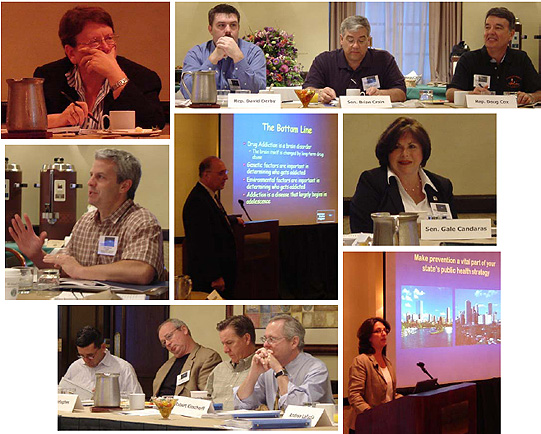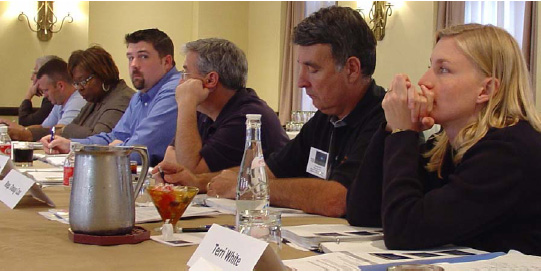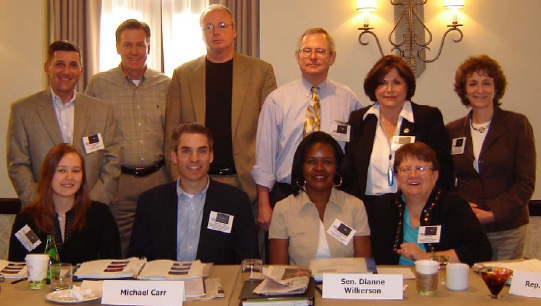  |
|
Addiction Studies Program for the States
October 25-27, 2007 Workshop
San Antonio, Texas
The October 2007 workshop of the Addiction Studies Program for the States
was sponsored by Wake Forest University School of Medicine, National Families
in Action, the Treatment Research Institute, and the National Conference of
State Legislatures. Teams from two states, Massachusetts and Oklahoma, attended.
|
|
|
Participants
What Participants Said
Faculty
Agenda
|
|
| Workshop Participants |
| |
|
|
| Massachusetts Team |
|
|

Representative
Ruth B. Balser
Massachusetts
House of Representatives
House Chair—Joint
Committee on
Mental Health and
Substance Abuse |
|
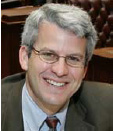
Senator Tom Adelson
Oklahoma State
Legislature
Co-Vice Chair,
Appropriations Committee
Co-Chair, Appropriations
Subcommittee on Health
and Social Services
|

Michael Botticelli
Director
Substance Abuse Services
Massachusetts
Department of Public
Health
|
|
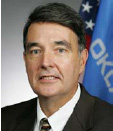
Representative Doug
Cox, M.D.
Oklahoma State
Legislature
Chair, Public Health
Committee
|

Senator
Gale D. Candaras
Massachusetts Senate
Senate Chair—Joint
Committee on
Mental Health and
Substance Abuse |
|
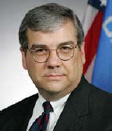
Senator Brian A. Crain
Oklahoma State
Legislature
Co-Chair, Appropriations
Committee on Health and
Social Services
|
Michael B. Carr, Esq.
Chief Counsel
Massachusetts General Court’s
Joint Committee on Mental Health
and Substance Abuse |
|
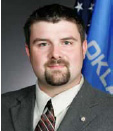
Representative
David
Derby
Oklahoma State
Legislature
Vice Chair, Economic
Development and
Financial Services
Committee
|

Gregory Hughes,
MSW,
LICSW
Executive Director
Governor’s Interagency
Council on Substance
Abuse |
|
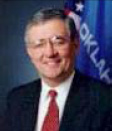
Howard Hendrick
Director—Oklahoma
Department
of Human Services
|
Robert Kinscherff, Ph.D., Esq.
Assistant Commissioner for Forensic Mental
Health Services
Department of Mental Health
|
|
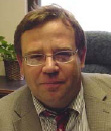
Tony Hutchison
Director
Office of State Finance
|
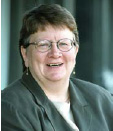
Representative
Liz Malia
Vice Chair—Joint
Committee on
Mental Health and
Substance Abuse
Massachusetts State
Legislature |
|
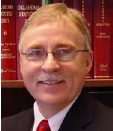
Justin Jones
Director
Oklahoma Department Of
Corrections
|
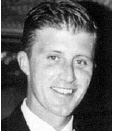
Representative
Eugene
O'Flaherty
Massachusetts State
Legislature
Chair—Joint Committee on
the Judiciary |
|
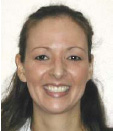
Andrea LaFazia
Prevention Service
Director
Oklahoma Department of
Mental Health and
Substance Abuse Services
|
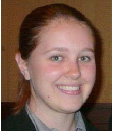
Sarah Saunders
Legislative Director and
Staff Liaison to the Joint
Committee on
Mental Health and
Substance Abuse |
|

Caletta McPherson
Deputy Commissioner for
Substance Abuse Services
Oklahoma Department of
Mental Health
|
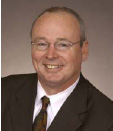
Senator Steven A.
Tolman
Massachusetts State
Legislature
Chair—Mental Health and
Substance Abuse
Committee
|
|
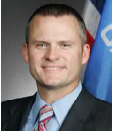
Representative Colby
Schwartz
Oklahoma State
Legislature
Assistant Majority Whip
Vice Chair, Public Health
Committee
|
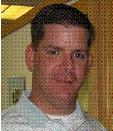
Representative Martin
Walsh
Massachusetts State
Legislature
Joint Committee on
Mental Health and
Substance Abuse
|
|

Terri White
Commissioner
Oklahoma Department of
Mental Health and
Substance Abuse Services
|
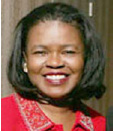
Senator Dianne
Wilkerson
Massachusetts State
Legislature
Joint Committee on
Mental Health and
Substance Abuse |
|
|
|
|
What Participants Said about the October 2007 Workshop
|
On the opening session
• Very informative and appropriate introduction
of the process and purpose of this study
program.
On Medication-Assisted Treatment
• Extremely informative. Helped put presentday
reality in context. Good information.
• Needs no improvement. Sue’s presentation
was fascinating and really gave me some
much-needed background or historical
perspective for how we came to be where we
are as a nation. I had never been exposed to
this material until today.
• Very informative
• Too much information in not enough time.
• Very good overview of the history of drug
abuse in our nation.
On the biology of addiction and public
policy
• Especially good as foundation for nonclinicians.
• Very interesting, extremely enlightening;
provided excellent foundation.
• Needs no improvement. This presentation
was one of the reasons I made the long trip. I
now have a good foundation and a far better
understanding of the disease that is addiction
and the difference or distinction between
addiction, physical dependence, and
psychological dependence.
• Very informative, useful, I will “borrow” this
for future use.
|
|
On the effectiveness of treatment
• Very, very good. Lots of information.
Learned a lot. Excellent presenter.
• She’s remarkable. Deni gave us important
perspectives on treatment and plenty of
ammunition to deal with the nay-sayers who
say treatment doesn’t work. I thought her
presentation was so compelling I intend to
invite her to speak to the General Federation of
Women’s Clubs Biennial State House
Convention. She will bring them a message
they need to hear.
• Great job, good presenter.
• Experience and enthusiasm and motivation
really made Deni’s presentation accessible.
Maybe the best presentation!
• I felt Ms. Carise’s presentation was excellent.
She was very informative and engaging.
On working across systems
• Excellent – excellent. Very informative in
relaying what others are doing across the
state.
On the history of drug abuse in the U.S.
• Extremely informative. Helped put presentday
reality in context. Good information.
• Needs no improvement. Sue’s presentation
was fascinating and really gave me some
much-needed background or historical
perspective for how we came to be where we
are as a nation. I had never been exposed to
this material until today.
• Very informative
• Too much information in not enough time.
• Very good overview of the history of drug
abuse in our nation.
|
|
|
On medication-assisted treatment, cont.
• Needs no improvement. I learned a lot from
this group of individuals, all of whom were
close to my age. Most of the panel members
had successful lives prior to becoming addicted
later in life. Panel members challenged and
disproved some of my assumptions about
substance abuse. The panel would not have
been as effective if it had been comprised of
much younger people. I was so very
impressed with how successful methadone
treatment is for these individuals. This
information is so critical in my district.
• It was great to see and hear from the
patients/clients.
• Wonderful!
• Panel of consumers was helpful in clarifying
the use of methadone for heroin addiction.
On Thursday afternoon facilitated
sessions
• This is a good example controlling positive
chaos – we are a tough group to manage and
Allison’s insights and direction kept us in a
productive mode.
Strategies for drug use reduction
• Some interesting points were raised.
• Feel like this segment focused more on the
real issue we don’t want to address.
On substance abuse and child welfare
• Very helpful overview—liked the data.
• The presentation was comprehensive and
very informative. Presenter very
knowledgeable.
• Nancy was her usual substantial self. She
answered dispassionately “what’s driving the
child welfare system.” I’ll use her slides for a
long time. Very helpful presentation.
• Excellent presentation, very clear, good data
and potential strategies to address.
• Information was beneficial to directing our
state process of developing a strategy.
Friday morning facilitated sessions
• We are making progress and Allison does a
great job re-focusing us.
• Excellent facilitators.
• Great opportunity for teams to meet.
• Again, group was tough, and team benefited
greatly from facilitator’s light but firm boundary
setting. |
|
On criminal justice I
• A good job explaining material to participants
with widely varying familiarity with this material
Very good presentation. Left us with much to
think about.
• Again, I liked the information, but not
enough time for talking.
• This information is imperative to changes and
laws for any state organization.
On criminal justice II
• Very good presentation. Saw it as one of the
most important presentations in terms of
subject matter.
• Kevin is a very dynamic presenter whose
mateireals were coherent and well organized.
He was very focused on his message and
presented/offered rational strategies with all
the evidence for why we should adopt these
strategies in a prison setting. He factored in
that the population is huge and very needy and
that resources are finite. He accepts there will
be no new money and presented strategies for
getting “the biggest bang for our buck.” I’d
listen to his presentation all over again if I
could. I like that he referred us to a website to
view all his materials. Very knowledgeable and
experienced.
• Very informative, confirmed much of what I
experienced while working in the Department
of Corrections.
• Nicely incorporated policy recommendations
as he presented data!
On Friday afternoon facilitated sessions
• Excellent facilitator.
• Our most productive session yet. Allison got
us to move the ball down the field father than I
thought possible. She keeps us on track
without making everyone angry with her.
She’s a good facilitator.
• We are getting closer to a plan. Its great of
have an open discussion.
• Very patient and focus-driven, which is
helpful to both law makers and policy makers.
On Saturday morning facilitated state
planning sessions
• Excellent facilitator.
• We got there. I think this will be very
helpful.
• Great strategies, tools, and a starting point
for some great things to work to over the next
six months. |
|
|
More Comments from Participants
|
Overall comments
• I got what I came for in terms of education
and support.
• I enjoyed the program and felt it was a great
opportunity to bring legislators and executivebranch
folks together to have more candid
discussions regarding substance abuse issues.
• It served the primary purpose of energizing
and focusing.
• Exceeded expectations because of the ability
to develop concrete proposals to address the
strategies developed.
• Opened my eyes to an issue.
• It was a great starting point for what will
hopefully change/improve prevention,
intervention, and treatment services for our
state.
• Was good to get state leaders together with
the time to talk and discuss and plan on a
course of action.
• I think we have developed some good and
reasonable 6-month goals as well as long-term
goals.
• I benefited on so many levels from my
involvement in the program. Thank you so
very much. It was well worth the expenditure
of time and energy to participate.
• That the program was so comprehensive and
so many topics were covered in such a short
time, was very impressive. I truly enjoyed the
speaking programs and the dialogue they
facilitated. I also enjoyed that so much time
was allotted for interaction within our team, as
that is rarely possible in “the real world,” given
time constraints, etc.
• Because of my professional background and
beliefs my view of addiction was supported
throughout the past 2 ½ days. |
|
Overall comments, cont.
• Very good conference. Great idea to bring
two state delegations together to learn and
share.
• This was great. Very well done.
• The presentations were very good. The
processing sessions were very good.
• Excellent concepts and information!
• Speakers were generally excellent. Topics
were well thought out.
• Keep doing it. Program is an excellent
opportunity to learn and share. Thank you.
• We are delighted to have participated. Keep
up the good work!
• Invite us back to follow up and see where we
are/how we have progressed.
Liked best about the program
• Hearing from the experts and the other state
delegation.
• The location of the conference. Flash drive.
Dinner speaker.
• All of it!
• The opportunities for discussion.
• The opportunity for the team to develop a
plan.
• The break-out times (facilitated sessions) for
the people within our state who knew our
needs, which differ with the other 49 states.
• The building of a team to move the issue
forward in my state.
• Maybe not for me but I appreciated the
criminal justice section for the law makers in
both groups. History was also excellent.
• The opportunities that we had to discuss and
ask questions of presenters.
• Sharing information with other states that
share some of the same challenges in relation
to prevention, intervention, and treatment of
addiction. |
|
 |
Faculty and Staff
|
|
Faculty
David Friedman, Ph.D.
Director, Addiction Studies Program
Professor
Department of Physiology and Pharmacology
Wake Forest University School of Medicine
Winston Salem, North Carolina
Sue Rusche
Co-Director, Addiction Studies Program
President and CEO
National Families in Action
Atlanta, Georgia
A. Thomas McLellan, Ph.D.
Partner, Addiction Studies Program
Chief Executive Officer
Treatment Research Institute
Philadelphia, Pennsylvania
Allison C. Colker, J.D., Esq.
Partner, Addiction Studies Program
Program Manager
National Conference of State Legislatures
Washington. D.C.
Amelia M. Arria, Ph.D.
Deputy Director of Research
Center for Substance Abuse Research (CESAR)
University of Maryland College Park
Deni Carise, Ph.D.
Director, Treatment Systems Research
Treatment Research Institute
Philadelphia, Pennsylvania
Bonnie Catone
Director of Communications
Treatment Research Institute
Philadelphia, Pennsylvania
Mady Chalk, Ph.D.
Director
Center for Policy Analysis and Research
Treatment Research Institute
Philadelphia, Pennsylvania |
|
Senator Mario Gallegos, Jr.
Texas Senate, Austin, Texas
Kevin Knight, PhD
Research Scientist
Institute of Behavioral Research
Texas Christian University
Fort Worth, Texas
John O’Brien, Ph.D.
Director, Resources for Recovery
Technical Assistance Collaborative
Boston, Massachusetts
Roger H. Peters, PhD
Chair and Professor
Department of Mental Health Law and Policy
University of South Florida
Tampa, Florida
Nancy Young, PhD
Director, Children and Family Futures
National Center on Substance Abuse and Child
Welfare, Irvine, California
Staff
Eric Dickerson
Controller, National Families in Action
Atlanta, Georgia
Matthew Gever
Policy Associate
National Conference of State Legislatures
Washington, D.C.
Diane Joyner
Administrative Assistant
Department of Physiology and Pharmacology
Wake Forest University School of Medicine
Winston-Salem, North Carolina
Teika York
Secretary III
Department of Physiology and Pharmacology
Wake Forest University School of Medicine
Winston-Salem, North Carolina
|
|
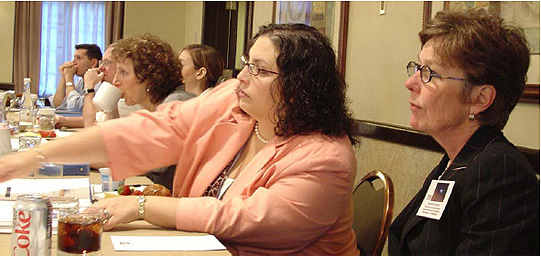
Agenda
Thursday, October 25, 2007
7:30 a.m.
Continental Breakfast
8:00 a.m.
Opening Session:
Welcome David Friedman
Housekeeping Issues Sue Rusche
Introductions Allison Colker
Goals for this Workshop John O’Brien
8:30 a.m.
A History of Drug Abuse & Addiction
in the U.S.
Sue Rusche
9:30 a.m.
The Biology of Addiction and Public
Policy
David Friedman
11:00 a.m. Break
11:15 a.m.
Does Treatment Work?
Deni Carise
12:45 p.m.
Lunch and Facilitated Discussion 1
Allison Colker and John O’Brien
1:45 p.m.
Working Across Systems
John O’Brien
2:45 p.m. Break
3:00 p.m.
Medication Assisted Treatment:
Methadone Patients from
Local Treatment Center
4:00 p.m.Facilitated Discussion 2
Allison Colker and John O’Brien
5:00 p.m. Evaluation Forms
5:15 p.m. Adjourn
6:00 p.m. Reception
6:30 p.m.
Dinner and Speaker
Texas Senator Mario Gallegos, Jr.
|
|
Friday, October 26, 2007
7:30 a.m.
Continental Breakfast
8:00 a.m.
Strategies for Drug Use Reduction:
Amelia Arria
9:30 a.m.
Break
9:45 a.m.
Substance Abuse and Child Welfare:
An Overview of the Issues
Nancy Young
10:45 a.m.
Facilitated Discussion 3
Allison Colker and John O’Brien
12:15 p.m.
Lunch
1:15 p.m.
Criminal Justice I
Roger Peters
2:45 p.m.
Break
3:00 p.m.
Criminal Justice II
Kevin Knight
4:00 p.m.
Facilitated Discussion 4
Allison Colker and John O’Brien
5:00 p.m.
Evaluations
5:15 p.m.
Adjourn
|
|
Saturday, October 27, 2007
7:30 a.m.
Continental Breakfast
8:00 a.m.
Facilitated State Team Planning
Allison Colker and John O’Brien
10:15 a.m.
Break
10:30 a.m.
Massachusetts Report Out and
Feedback
Massachusetts Spokesperson
11:00 a.m.
Oklahoma Report Out and Feedback
Oklahoma Spokesperson
11:30
Wrap-Up and Reflections
Bonnie Catone
11:45 a.m.
Evaluations
12:00 noon
Adjourn
|
|
|
|


